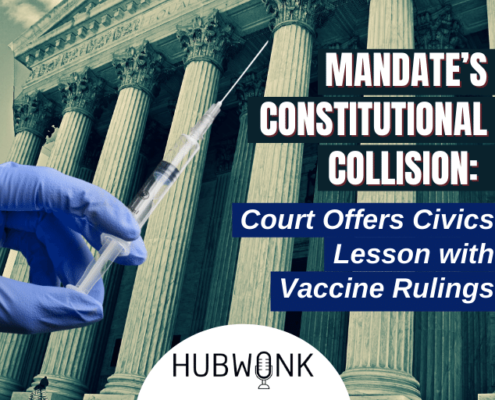Mass. schools must recommit to knowledge-based curriculum
This op-ed is authored by Tom Birmingham and E.D. Hirsch. It originally appeared in CommonWealth Magazine. It was also published in the Worcester Telegram & Gazette.
LONG BEFORE OTHER states, Massachusetts understood that a democratic republic can’t endure without a good public education system. Its constitution, written by John Adams in 1780, requires that it “cherish” education. The Bay State’s native son Horace Mann pioneered the common school movement, and it was also the first state to have compulsory education for all children.
Moreover, by “education” Adams, Washington, Jefferson, and Horace Mann meant not just facts but also a social commitment – not just to Massachusetts but also to the new nation as a Union.
The Bay State’s leadership role has continued into the current century. Massachusetts made tremendous strides in the years following passage of a landmark 1993 education reform law.
But it has been backsliding since 2010, when it adopted weaker English and math standards known as Common Core. To get back on track, Massachusetts must reform its school- and district-level curriculum to emphasize imparting a shared body of background knowledge and social commitment to students in all ZIP codes.
This knowledge-and-society-centric approach isn’t new. Massachusetts’s decision to prioritize academic and civic content was one of the central reasons for its rise to the top on the National Assessment of Educational Progress (NAEP), known as “The Nation’s Report Card.” In stark contrast to the country as a whole, Bay State students proved themselves to be competitive with top-scoring Asian countries in international math and science testing.
Disadvantaged students also benefitted from Massachusetts’s rise. Providing all students with the same knowledge-rich content helps those who are less affluent by giving them access to the vocabulary of the classroom and the world.
Advantaged students gain much of their knowledge outside the classroom. Providing it to their less advantaged counterparts beginning in pre-school can’t eliminate the knowledge gap, but does narrow it.
There is a strong correlation between overall educational quality and equity. Between 1998 and 2005, the three states that showed significant improvement in eighth-grade reading scores – Delaware, Massachusetts, and Wyoming – also saw narrowing achievement gaps.
But in 2010, the Bay State replaced academic content-rich standards with the content-empty, value-free Common Core. Most other states did the same, but the impact was particularly unfortunate in Massachusetts, where its former standards were a national model.
Since Common Core, NAEP fourth-grade reading scores have declined nearly a quarter of a point per year and eighth-grade reading scores are down by three times that much.
Last year the bottom fell out. Eighth-grade math scores fell three points since the last time NAEP was administered in 2017. Meanwhile, 15 of the jurisdictions tested showed improvement and 23 declined less than Massachusetts. A two-point drop in fourth-grade math was worse than 40 states and the District of Columbia.
Yet, math performance was downright encouraging compared to the state’s 2019 fourth- and eighth-grade reading scores, each of which fell by a stunning five points.
Politics make it highly unlikely that Massachusetts will correct its failed Common Core experiment and revert to its former, superior standards. But individual school districts can adopt a specific, content-rich, year-by-year elementary school curriculum like the Core Knowledge sequence that sets out exactly what students should learn about subject areas and our national ideals in each grade.
Renowned Stanford University Professor Emeritus James Milgram calls mathematics “ruthlessly cumulative.” That doesn’t just apply to math. In the humanities as well, students need to understand “A” before they can understand “B.” Above all, they need to understand the language of the classroom before they can understand what the teacher and text are trying to convey. Including all students means ensuring that all have the necessary background knowledge from their earlier lessons.
Public education and patriotism remain the cornerstones of a self-governing republic. Our nation must be based on schools that offer disadvantaged students genuine hope of upward mobility.
Currently, Massachusetts is in full retreat from a system that produced both historic results and greater promise for educational equity. But if the Bay State’s schools and districts can recommit themselves to a set, high-quality curriculum, perhaps the Commonwealth can once again become a model for other states to emulate.
Get Our COVID-19 News, Tips & Resources!


 Metropolitan Transportation Authority of the State of New York from United States of America, CC BY 2.0
Metropolitan Transportation Authority of the State of New York from United States of America, CC BY 2.0 







